Post
A catch
Save a catch to start your fishing logbook. You will be able to to share it with the community if yo want!
A fishing trip
Post an ad to go fishing with other fishermen
Save a catch to start your fishing logbook. You will be able to to share it with the community if yo want!
Post an ad to go fishing with other fishermen
Share a thought, a question with the community
My favorite cities
×Keep your rods ready for Eddy in McLennan. The fishing forecast is currently 2.4. The most caught fishes here are the black crappie, the spotted seatrout, the bluegill and the arctic grayling. Come try the most famous fishing techniques like the bass trolling, fishing for sea bass while surfcasting, deep-sea fishing or surf fishing.
Our fishing forecast of Eddy indicates the best time to go fishing in this city.
The Black Crappie
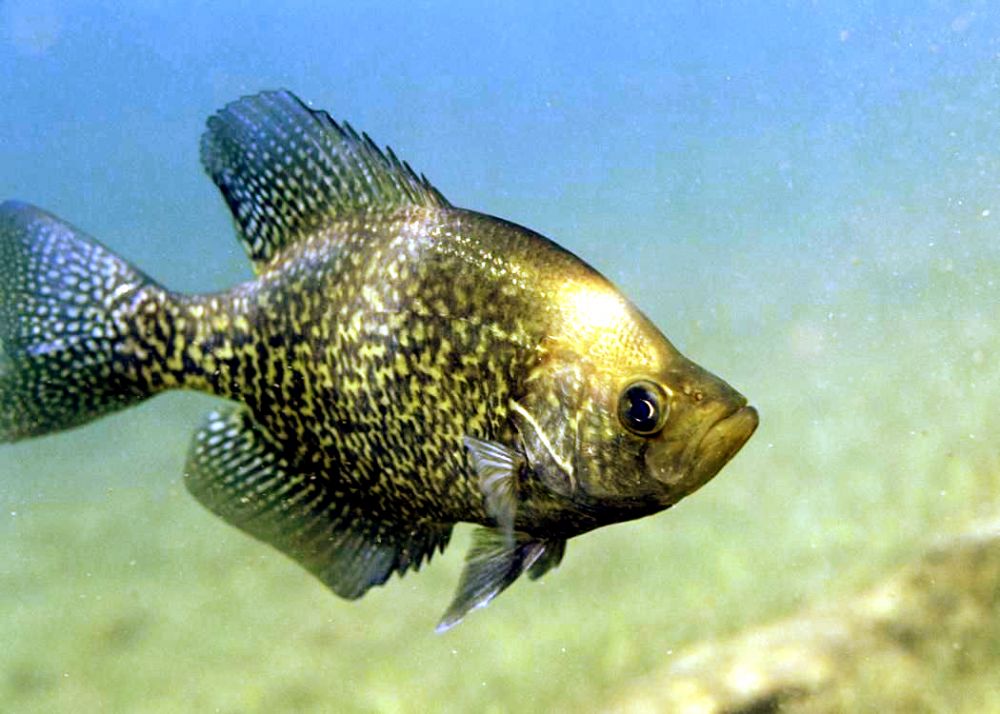
The black Crappie belongs to the Centrarchidae family. Its average length is 18 to 25 cm, up to 38 cm with a weight generally varying between 300 and 900 grams. The largest specimens can reach 1kg. The all-time record comes from Missouri with a 2.26kg black crappie, while Ontario's is 1.7kg. It breeds around the end of March. Its longevity is 7 years. It is fished in April and May. The body of this fish has the typical shape of craps and other members of the centrarchidae family, i.e. oval and flattened with thorny fins. The height of this fish represents about 33% of its length. Its color is mainly dark olive, covered with a mosaic of irregular black spots on its head, back and sometimes on its belly. The flanks are paler, but also spotty, often with silver, green or even blue highlights. The color can vary considerably depending on the environment in which the fish live. Its mouth is large, reaching to a point below the middle of the eye. The black Crappie is particularly recognizable by its large fins, which give the impression that it has sails. It has 7 to 8 spines on the dorsal fin and 6 to 7 spines on the anal fin. This is one of the main distinctions that can be made with some craps that have 10 to 12 spines on the dorsal fin. The differences between the white and black crappie are sometimes subtle. The dark spots on the black crappie are a random texture, they appear as stripes on the white crappie. The latter also has a less dark back, a longer body and, above all
The Black Crappie is a famous fish you can catch in Eddy.The Spotted Seatrout
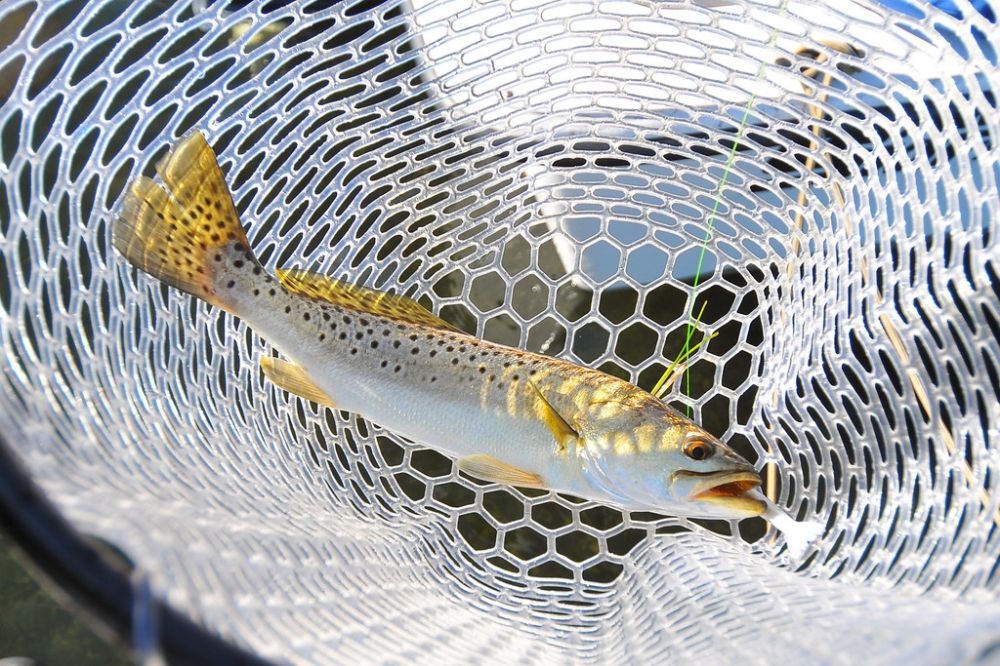
The Spotted Seatrout belongs to the Scianidae family. Spotted sea trout reach a maximum length of 100 cm and a maximum weight of 7.9 kg. The lifespan of this species is 8 to 10 years. It breeds from March to September. It can be fished all year round. The spotted seatrout has an elongated, somewhat compressed body with a slightly elevated back. The head is long with a pointed snout and a large oblique mouth. The dorsal fin is continuous or slightly separated. The fins are flake-free, with the exception of 1 to 10 rows of small scales at the base of the dorsal and anal fins. The lateral line extends over the tail, characteristic of all Sciaenidae. The body of the spotted seatrout is silvery with irregular black spots on the upper half, from the dorsal fin to the caudal fin. The dorsal side is dark grey with bluish reflections while the ventral side is silvery to white. The dorsal fin is dark, while the others are yellowish.
The Spotted Seatrout is a famous fish you can catch in Eddy.The Bluegill
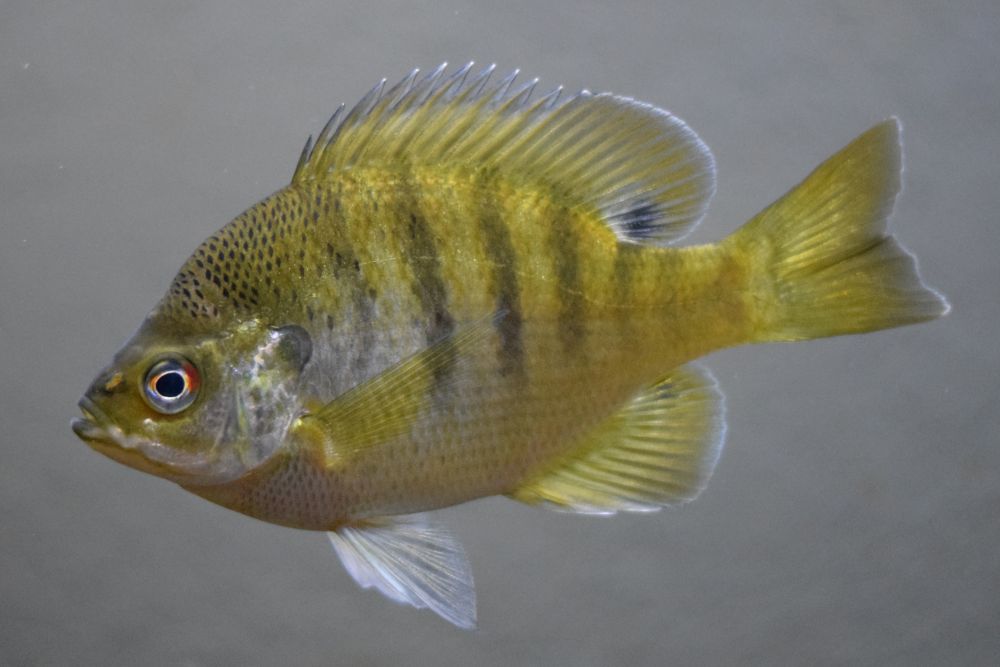
The Bluegill belongs to the Centrarchidae family. Adults are between 10 and 15 cm long but can reach 41 cm. Bluegill usually lives 4 to 6 years. Spawning season for bluegill begins in late May and continues until August. They can be caught from spring to summer. Like other cramps, bluegill have a very deep and flattened body. In other words, they are "large" and "flat". They have a small mouth on a small head. The dorsal fin is continuous, with the thorny anterior part and the soft, round posterior part with a dark touch at the base. The caudal fin is slightly forked but rounded. The body is mainly olive green with a yellowish underside. Their name "bluegill" comes from the shimmering blue and purple region on the cover of the cheeks and gills (operculum). A careful examination reveals six to eight vertical olive bars on the sides.
The Bluegill is a famous fish you can catch in Eddy.The Arctic Grayling
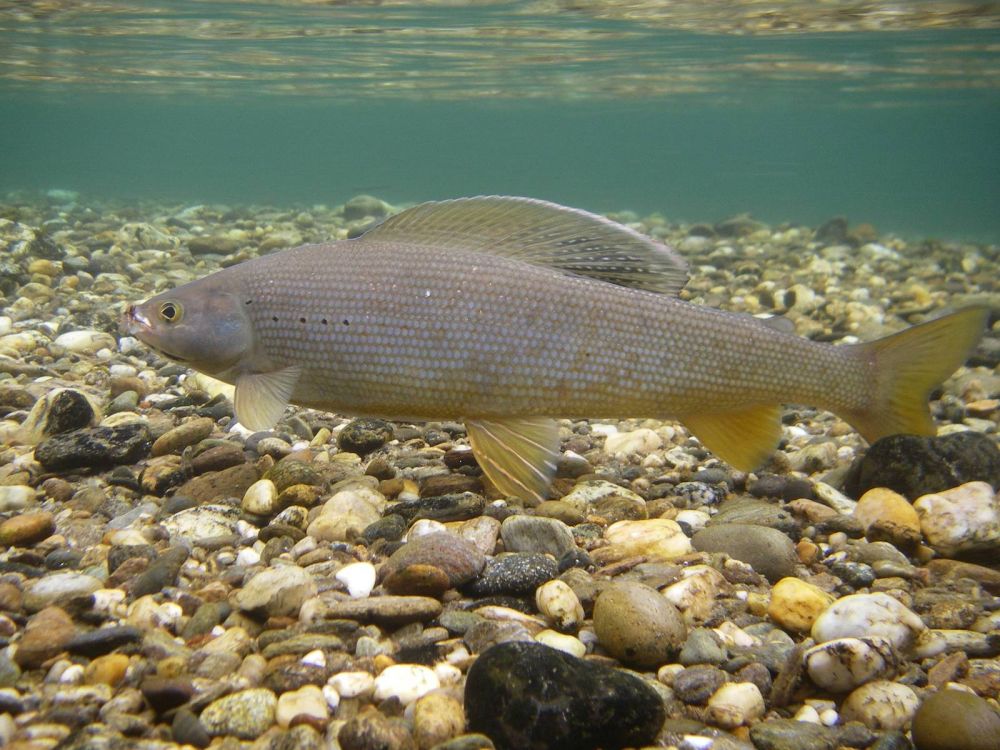
The Arctic Grayling belongs to the Salmonidae Family. The Arctic shade can reach a length of about 24 cm long and weighs about 3 kg. He can live to be 18 years old. It breeds in the spring and lays thousands of eggs. It can be fished all year round. Coloring may vary depending on the location. The dorsal fin is usually bordered red and dotted with large iridescent red, turquoise, purple or purple spots and marks. Back marks are more evident on the large shadows. The back of the Arctic shadow is generally dark. The sides can be in black, silver, gold, or blue. Gold markings sometimes form a border between the hips and the belly, while pelvic fins can be orange, red or pink. The sides and head can be freckles with black spots. The eye of the iris is often the color of gold.
The Arctic Grayling is a famous fish you can catch in Eddy.Brown Trout
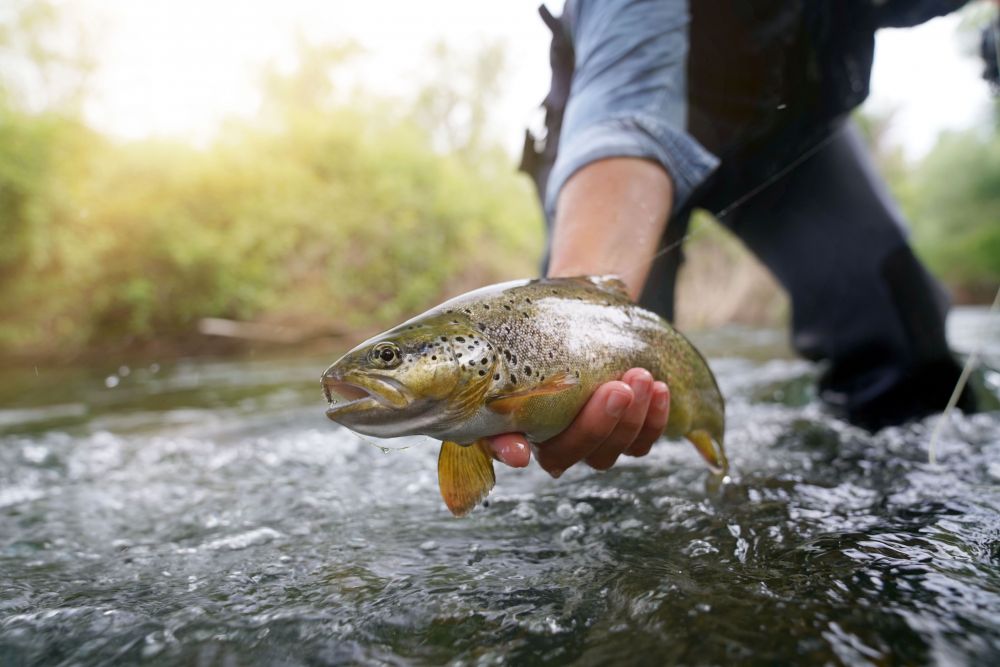
The Brown Trout belongs to the Salmonidae family. According to the location, the adult size varies from 25 cm to 80 cm for 300 to 800 g. It lives for 3 to 6 years. The spawning period starts in October and end in January. The female can lay up to 4000 eggs. The fishing period is open from the second Saturday of March until the third Sunday of September. This fish is not hard to catch but the fishing needs complex skills. Depending on its environment, the brown trout have a very variable color, but the brown trout, as its name shows, is rather brown with scattered black and red spots, depending on the spawners. It has a certain mimicry according to the bottom of its living spaces since the dominant brown will become a green dress if it lives close to the banks where yellow and even sometimes silvery white will mix. It has a "useless" adipose fin between the dorsal fin and the caudal fin. The head is tapered, strong and has a powerful jaw. Its back is a pretty black or night blue.
Brown Trout is a famous fish you can catch in Eddy.Our fishing forecast of Eddy indicates the best time to go fishing in this city.
Our fishing forecast of Eddy indicates the best time to go fishing in this city.
Our fishing forecast of Eddy indicates the best time to go fishing in this city.
